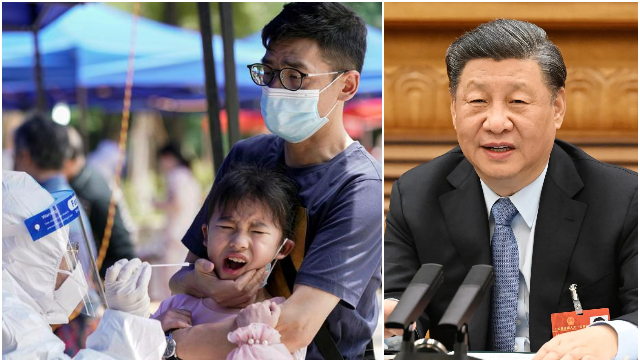The fact that China regulates its AI applications and how people access and use it, is a widely known fact. However, what has been impervious so far is the fact to what extent China has manipulated its AI bots, especially the ones that are supposed to take on ChatGPT. OpenAI’s ChatGPT has been banned in China, mainly because its responses cannot be regulated, something that the Chinese Communist Party simply cannot allow. China’s taste for ChatGPT Having said that, people in China, mainly people who are tech-literate, have often revealed that they use VPNs to access ChatGPT in the country. Having said that, tech companies in China have been busy making their own AI bots. Baidu, China’s biggest internet services company, has an AI bot that is modelled after ChatGPT, called Ernie. Also read: AI Leads To Arrest: Chinese man arrested for using ChatGPT to create fake news about a train crash The Ernie chatbot, like Chinese citizens, appears to be subjected to stringent regulations. During a live demonstration, Ernie bot refused to address controversial questions and even banned users who drew comparisons between the Chinese President and Winnie the Pooh. Baidu, CCP, and President XI left red-faced In a segment on CNBC’s “Squawk Box,” reporter Eunice Yoon questioned Ernie Bot about COVID-19 and Xi in both English and Chinese. However, the chatbot either remained silent or provided misleading information. When asked about the origin of the virus, Ernie Bot evaded the question, stating that it is still a topic of scientific research, disregarding the fact that the virus originated in China, with some reports suggesting a potential lab leak in Wuhan. Also read: Inventor of China’s Firewall says that AI bots like ChatGPT pose big challenges for governments Similarly, when asked about the relationship between Xi and Winnie the Pooh, Ernie Bot failed to respond, and Yoon’s access to the chatbot was abruptly disabled. China’s influence on BingAI Not just Ernie, it seems that the CCP has managed to influence Microsoft as well, and how its Bing AI responds to certain questions about China. Back in March this year, a researcher had found out that Microsoft’s Bing AI seemed to be biased to follow Chinese propaganda, especially when it is asked about the Uyghur ethnocide. Also read: Microsoft’s Bing AI toes CCP’s line, says Uyghur women’s testimonies of forced sterilisation fabricated A Twitter user discovered that Bing AI tried avoiding such questions at first, but when pressed took a pro-China side, saying that reports of forced sterilisation were exaggerated and made up. Xi Jinping hates being compared to Winnie the Pooh The connection between Xi Jinping and the beloved cartoon character has been a source of controversy, with Jinping being unfavourably compared to Winnie the Pooh by internet users. These comparisons date back to 2013 when Xi Jinping’s image with Barack Obama was likened to that of the bear and his friend Tigger. As the comparisons and memes gained popularity online, censors began removing images that mocked Xi, leading to a complete censorship of Winnie the Pooh by the Chinese government in July 2017. This included banning the sale of Winnie the Pooh merchandise and blocking searches for the character on social media platforms. Political dissenters have often used images and merchandise of the beloved children’s cartoon to voice their dissent and opposition to Xi. The censorship of Winnie the Pooh is seen as indicative of Xi Jinping’s growing intolerance of dissent and the Chinese government’s efforts to control the flow of information online. Read all the Latest News , Trending News , Cricket News , Bollywood News , India News and Entertainment News here. Follow us on Facebook , Twitter and Instagram .
Tailored To Lie: China’s AI bots deny COVID-19, bans people for asking 'bad' things about President Xi
Mehul Reuben Das
• May 22, 2023, 13:41:09 IST
In a recent demonstration of Baidu’s Ernie AI bot, people found that the it will dodge questions about Covid-19’s origin, or any role that China may have had to play. It was also found that the bot would ban users who asked a bad question about President Xi Jinping
Advertisement
)
End of Article